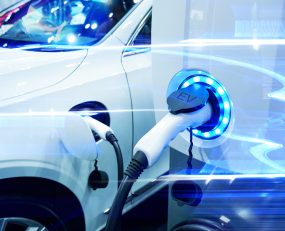
John Lewis is now looking to expand its home fleet and has started to run a trial, replacing diesel delivery vehicles with electric.
The company has found it is cheaper to run its own fleet rather than relying heavily on third party carriers, such as DPD and Hermes, although it still uses them for one-man deliveries. They deliver 11 million parcels for the company annually, but in some reports there is speculation that John Lewis will also replace these one-man deliveries with its own fleet. John Lewis’ 7000 vans deliver bulkier items to customer homes and make three million two-man deliveries a year in the UK.
John Lewis is aiming to remove all fossil fuels from its fleet by 2030, transitioning 4,000 cars, vans and light trucks to EV by 2030. Trials are in progress. In addition to producing fewer pollutants, the EVs have greater capacity than diesel vans. In some cases, this could mean that John Lewis will replace three diesel vans with two electric ones. The EVs can also be upgraded as technology advances, meaning the electric vans could have a life of up to 20 years or more.
John Lewis is using a mixed charging solution, incorporating depot, public network and home charging and it is working together with EV technology specialist, Flexible Power Systems (FPS). The FPS platform manages EVs, chargers and connections and its software assists in choosing the right site, vehicles and infrastructure.
John Lewis is collaborating with data scientists during the trial. The data informs its decarbonisation strategy going forwards and enables the company to identify, forecast, and pre-emptively mitigate risk.
Source: Transport Intelligence, 12th July 2022
Author: Julia Swales